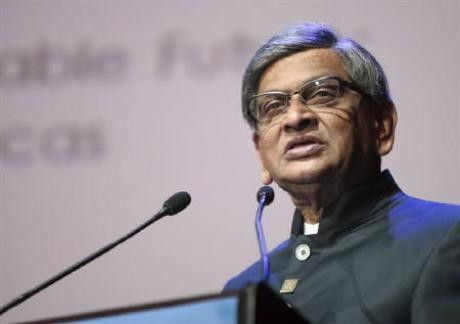Ahead Of Indian Minister?s Visit, China Cautions Its Citizens Against Traveling To India

Further straining the trade ties between both the countries, China has issued an advisory cautioning its citizens against traveling to India in response to an Indian embassy's warning last week to its traders against doing business with Chinese sellers.
The advisory, which was posted on the Chinese foreign ministry website as well as in the website of Chinese embassy in New Delhi Friday, cautioned its citizens about disruptions in travel schedules due to widespread protests in India against the recent hike in petrol prices, Press Trust of India reported.
According to Indian media reports, many places in India are witnessing protests and strikes due to the recent hike in oil prices. Railways and highway transport have either come to a halt due to strikes or have been impacted to different degrees, the advisory said.
The Chinese embassy in India would like to alert the Chinese citizens about this and request them to confirm their itinerary with related agencies to avoid delays.
At the same time, during this period, they should be careful about personal safety and safeguard their personal belongings, it said.
The advisory, which came ahead of Indian minister for external affairs SM Krishna's trip to China to participate in the Shanghai Cooperation Organization (SCO) scheduled to start June 6, has surprised Indian officials as Beijing very rarely issues such travel notices to its citizens through ministry sites.
The new advisory, close on the heels of India's response to the nationalist Global Times article by a law professor justifying the abduction and abuse of the Indian traders over financial disputes, is seen as a retaliation by the Chinese officials.
Indian embassy in Beijing had earlier written a sharp rejoinder in response to a Chinese media report which argued that the three Indian traders, who were kidnapped and abused by Chinese suppliers, bore the responsibility for the incidents by delaying or defaulting on payments after having made the purchases in advance.
It's understandable that the sellers may adopt some radical actions to demand payment, given the potential damage to their business, Global Times said in the article, which was published in response to Indian embassy's advisory issued last week, warning Indian traders not to do business in Yiwu, a market town in Zhejiang Province, following a series of controversial business disputes involving the Indian traders.
The Indian embassy posted a statement on its website Tuesday in response to the Global Times article, saying it was extraordinary that a professor of law finds 'understandable' what he himself describes as solving 'the issue by force' that includes 'illegal detaining' of Indians.
The prevalence of such views and that your newspaper has chosen to print them makes the case for our advisory even more compelling. The professor from Yiwu thinks that 'radical actions' are a solution to trade disputes. Others like us expect, perhaps optimistically, the rule of law, Vinayak Chavan, secretary at the Indian embassy, said in the statement, questioning the rule of law in China.
The abduction of Mumbai-based trader Danish Qureshi on the night of May 19 by Chinese traders for refusing to pay an amount of 165 million Yuan (over $25 million) led to the fallout between the officials. Qureshi was allegedly abused by the traders and was released after five days in captivity.
In a similar incident last year, Indian businessmen, Deepak Raheja and Shyamsunder Agarwal were also kidnapped and abused.
India's foreign minister is expected to discuss the issue during his visit to China.
© Copyright IBTimes 2024. All rights reserved.






















